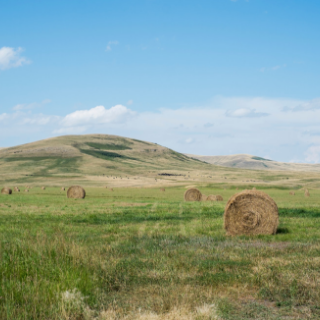God spoke and everything changed
I peeked out the window and everything was pure white. Snow in Dallas is uncommon. This much snow in Dallas is . . . wait for it . . . unprecedented!
(For those who read my blog each week, that was intended to be a joke!)
Yep, there is that word again.
I am still a California girl at heart. I like it to snow, and then I like the snow to melt off that same afternoon. This long, cold stretch of snow isn’t just unprecedented; it’s unwelcome.
My friend in Houston had a Facebook post about choosing not to “coddle” his outdoor plants by spreading blankets on them. Another friend, who lives in Casper, Wyoming, is probably reading those words, rolling her eyes and laughing. Today’s Dallas weather is her definition of a spring day.
The good news is that a week from now we should see much warmer weather. After all, this is still Texas, and the cold will disappear. Our weather is unpredictable—and a great analogy for God’s voice in our lives: there are moments we expect to hear from him and other times his voice is a surprise.
Either way, when God chooses to speak, we should be quick to listen.
“AND GOD SAID”
“And God said let there be light, and there was light” (Genesis 1:3). Those are familiar words, but they are also incredibly profound. God spoke this world into existence. He said “let there be” light, darkness, oceans, plants, animals, and people. God spoke and everything changed, except him.
God spoke the world into existence and has continued to speak into his creation. Take a moment to consider the fact that the same voice that created our entire world is the same voice that speaks to your soul.
When we consider the full power of his voice, what keeps us from hanging on his every word?
WHAT HAS GOD SPOKEN TO YOU RECENTLY?
Do you know what God recently said to you?
I can ask that question of every Christian because God is in constant communication through his Holy Spirit. Is that why you are reading these words right now? You are God’s child. Never doubt his desire to guide you in his good ways.
Frederick William Faber, a British theologian and hymn writer, said, “There is hardly ever a complete silence in our soul. God is whispering to us well-nigh incessantly. Whenever the sounds of the world die out in the soul, or sink low, then we hear these whisperings of God. He is always whispering to us, only we do not always hear because of the noise, hurry and distraction which life causes as it rushes on.”
God has spoken his word and his will to you. Has the noise and distraction of this culture or even this crazy weather caused you to doubt or ignore his voice?
The same voice that created the world speaks to you “well-nigh incessantly.”
We have to learn to listen devotedly.
JESUS SPOKE WITH GOD’S VOICE
Paul was talking about Jesus when he wrote, “He is the image of the invisible God, the firstborn of all creation. For by him all things were created, in heaven and on earth, visible and invisible, whether thrones or dominions or rulers or authorities—all things were created through him and for him. And he is before all things, and in him all things hold together” (Colossians 1:15–17).
The voice of Jesus is the same voice that created all things. When we hear Jesus speak in Scripture, in our hearts and souls, and through our dreams and prayers, we are hearing the same voice that will one day call us home to heaven.
If we learn to listen to the voice of Jesus in our lives today, his voice will be easy to recognize on the day Jesus returns. His should be the voice of a good friend, our counselor, our guide, and, most importantly, it is the voice of someone we love.
WHAT CHANGES WILL GOD SPEAK INTO YOUR LIFE?
I’m wrapped in warm clothes and fur-lined boots, and I’m watching it snow. It is unprecedented cold today, but it won’t be long before this outfit gets packed up and put away. This is Dallas, Texas. The sun will soon melt the snow, the snow will water the earth, and the bluebonnets will blanket the roadways.
God didn’t have to create seasons, but he did. Do you ever wonder why?
I think our changing world has always existed to remind us of our unchanging God. The apostle Peter was quoting from Isaiah when he wrote, “‘The grass withers, and the flower falls, but the word of the Lord remains forever.’ And this word is the good news that was preached to you” (1 Peter 1:24–25).
Throughout our lives, God will speak changes he wants us to make. He will guide us to see things in a new way or follow a new path. If we know God’s word, we should expect change. But, we can also expect his unchanging voice to guide us as we listen.
The world has seen a lot of change since God spoke it into existence. It’s comforting to realize that God is still the same. “Jesus Christ is the same yesterday, today and forever” (Hebrews 13:8).
GOD SPEAKS UNCHANGING TRUTH TO OUR CHANGING LIVES
Frederick Faber said that God spoke “well-nigh incessantly” and that we could hear that voice if we don’t allow the noise and distraction of this life to drown out God’s word to us. So why is it that so many people in our world today don’t even consider the voice of the One who spoke all things into existence?
Frederick Faber had that answer as well. He wrote, “There are no disappointments to those whose wills are buried in the will of God.” It will be difficult to hear God’s voice unless we are ready to follow his will. It will be difficult to hear God speak through his word unless we are convinced that his word is truth. And it will be difficult for God to interrupt our plans if he is not Lord of our choices.
God’s will is not hidden, but it is often ignored.
God’s will is spoken, but it is often heard as a suggestion rather than a command.
Remember, God speaks.
But God speaks to servants who listen.
WHEN GOD SPEAKS, EVERYTHING CHANGES
We have been plagued with power outages and freezing temperatures. Those plagues follow the changes that occurred because of a virus. I am so ready for spring!
Everything changes, and it always will, but not God. The voice that created the world continues to speak. His voice is knowable and his truth is unchanging. His voice offers consistent truth, offered in different ways, at different times, to different generations—until one day, this world changes one last time.
One snowstorm will be our last.
One day his voice will call us home.
That day will be unprecedented for us but completely consistent with the truth of God’s word.
From now until then, the goal of every day is to listen for him to speak, ready to walk with his direction.
When God speaks, everything changes—except him.










